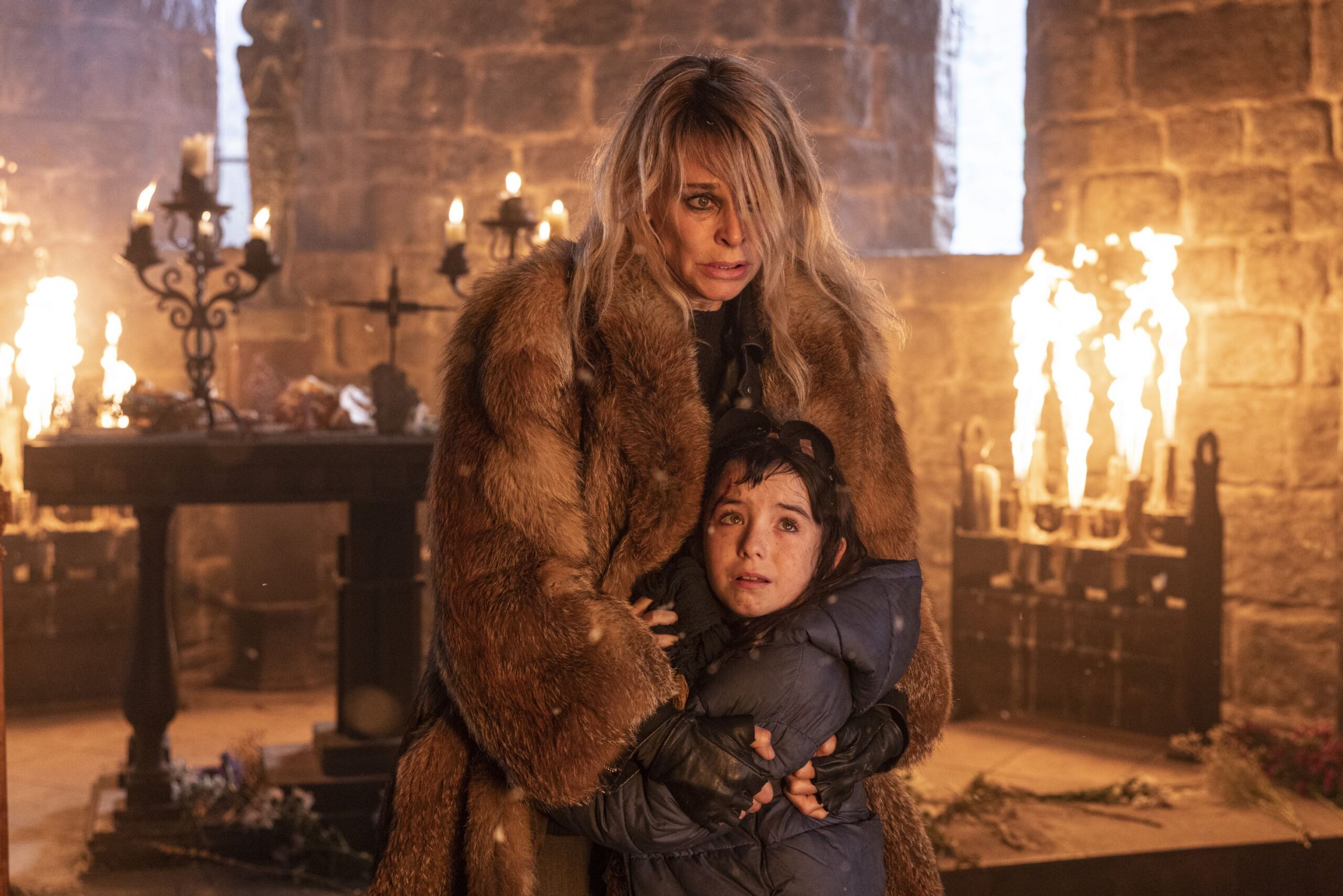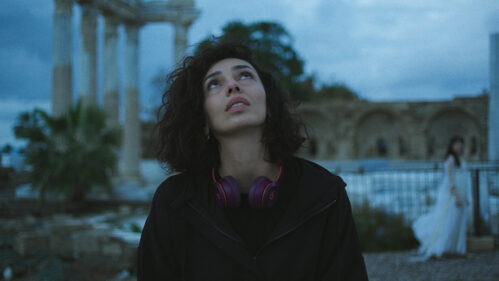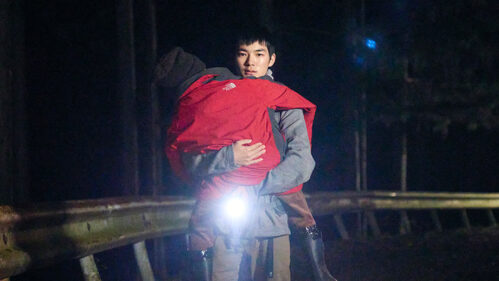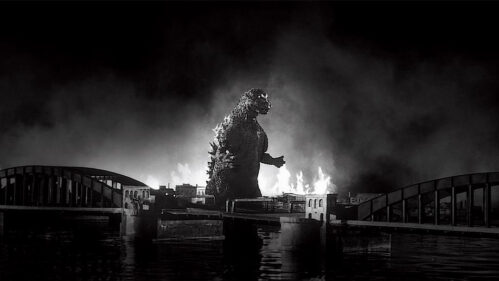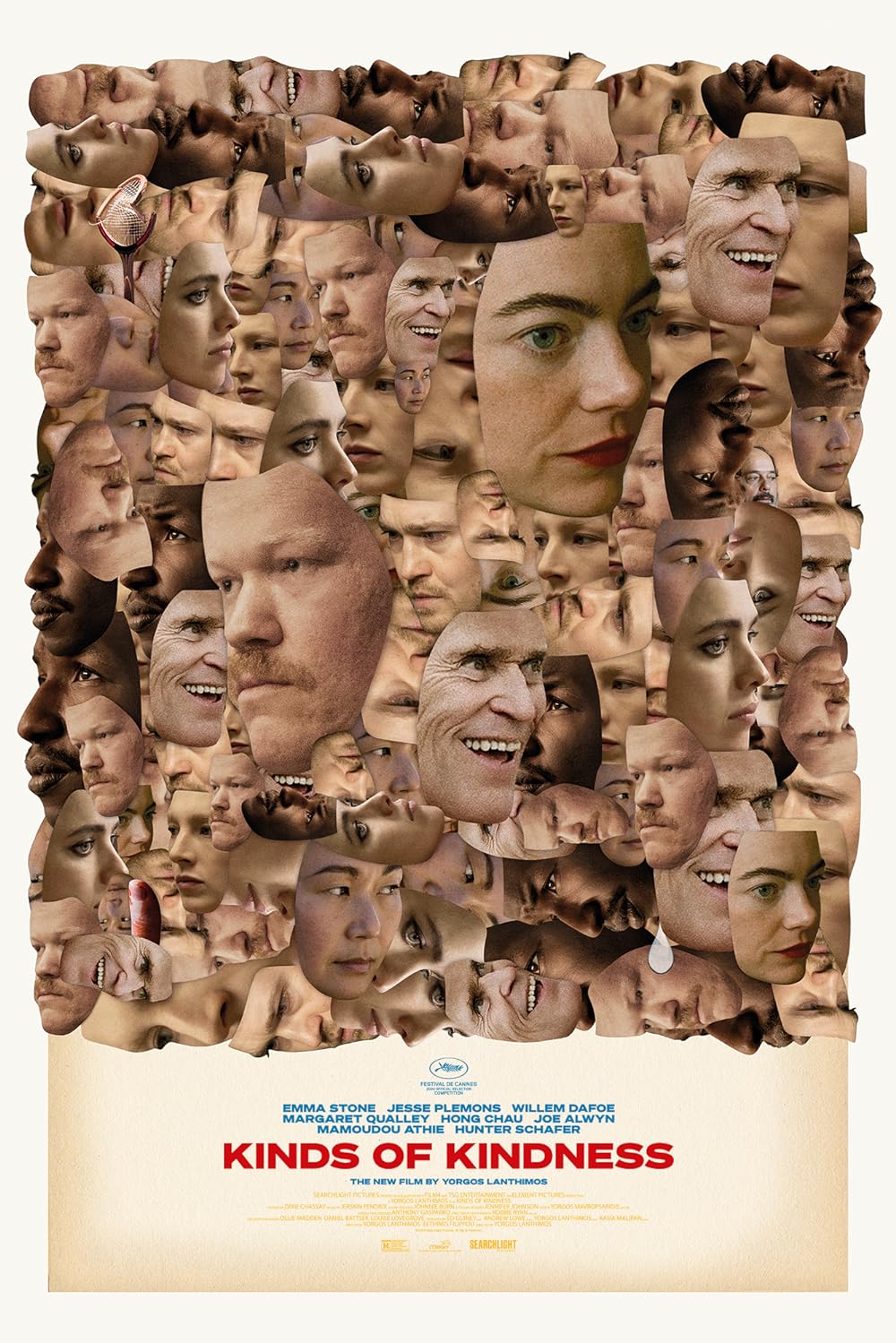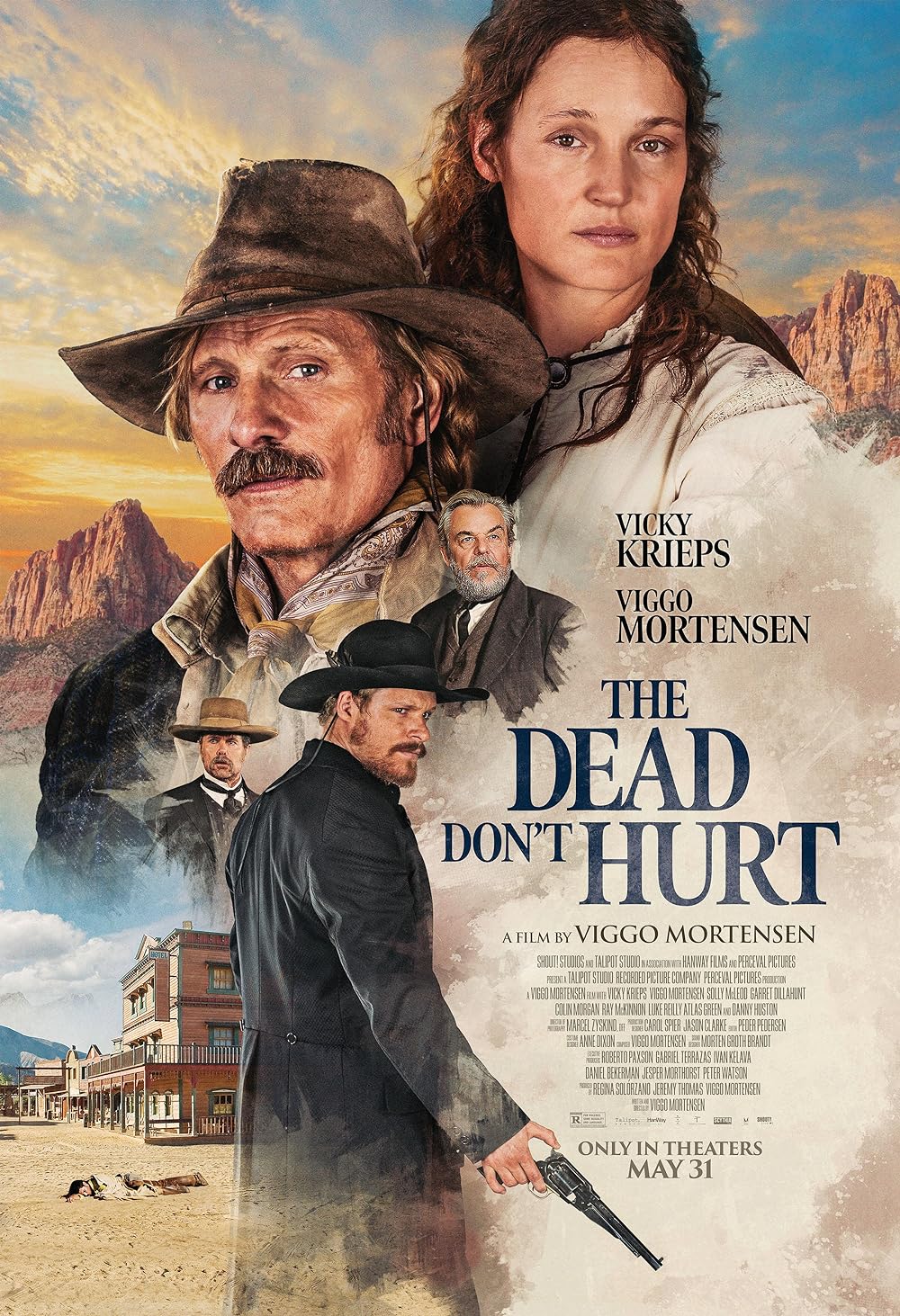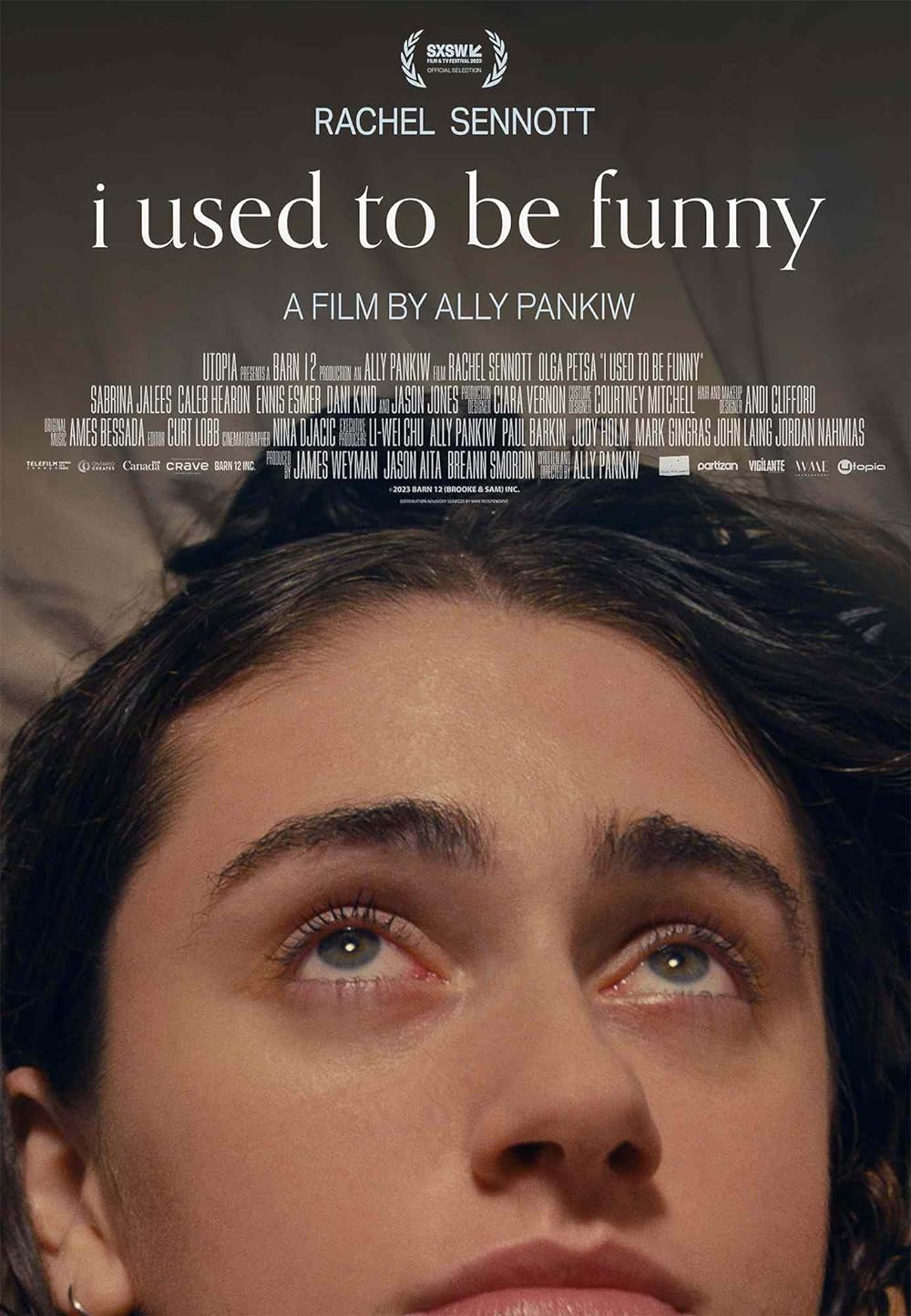Children often make for effective horror (or other genre) protagonists -- after all, they can serve as a representation of our collective innocence, the purity of life that forces both worldly and otherworldly can corrupt or threaten. But they also offer a more honest, open lens by which to view the vagaries of adulthood: our cynicism, our faults, the pressures we visit upon them. These three titles out of this year's Fantasia Film Festival aren't all works of children in danger, but they do let us look at the sins of parenthood and society through new wide-eyed lenses.
Fresh off her invigorating feature debut "Piggy," Spanish filmmaker Carlota Pereda returns with "The Chapel," a decidedly atmospheric supernatural drama that echoes the early works of Guillermo del Toro ("The Devil's Backbone," "Chronos"). Set in a remote Spanish town, "The Chapel" opens in 1631 by telling us the story of the Black Plague, in which plague doctors dressed in crow-like masks would scour the town looking for the sick, locking them in the town chapel to spare the rest from disease. One of the most tragic victims of this is Uxoa (Alba Hernández), a young girl who's ripped from her mother's arms screaming. Then, as Pereda's camera pans, we see a bystander holding up a smartphone; we've been watching a reenactment, a clever transition from the past to the present.
It's a testament to Pereda's stately, atmospheric direction, a vision preoccupied with seeing and belief and the links between generations, which fuels the mother-daughter melodrama of its primary story. You see, every year the town opens up the titular chapel for five days as a tourist destination -- complete with rituals performed by local medium Ivana Peralta (Nagore Aranburu). One problem: the night of the festival, Ivana is found dead of natural causes by eight-year-old Emma (Maia Zaitegi), her young apprentice.
Emma is herself preemptively haunted, as her mother (Loreto Mauleón) is dying of cancer in hospice; she's desperate to learn the secrets of channeling the dead so that, after her mother dies, she can still reach her. With Ivana gone, her only hope is the medium's daughter, Carol (Belén Rueda), who herself only performs cheap palm readings and flimflam shows for money. She doesn't believe in the supernatural, which makes her a decidedly cynical guardian for the wide-eyed child.
From there, Pereda shuffles us along a suitably moody and well-performed ghostly drama that earns points for atmosphere but loses itself when it comes time to actually perform horror. Most of the scares come when Emma reads her Latin-laden book of smells, and without fail, her tummy aches and maggot-covered plague doctors come to try to snatch her away. It's effective at first, but then gets repetitive, and the fiery climax within the chapel itself is a bit too hazy to really work.
The lead performances are superlative, though: Rueda makes for a suitably pouty parental figure, eyes boring holes in everyone she meets through a face half-scarred by burns. But Zaitegi is a revelation, a beautifully cherubic figure who carries the pathos of her impending loss with unenviable pain. There's a desperation to her behavior surrounding a dying parent that echoes J.A. Bayona's deeply slept-on "A Monster Calls," though its emotional highs don't quite reach those peaks.
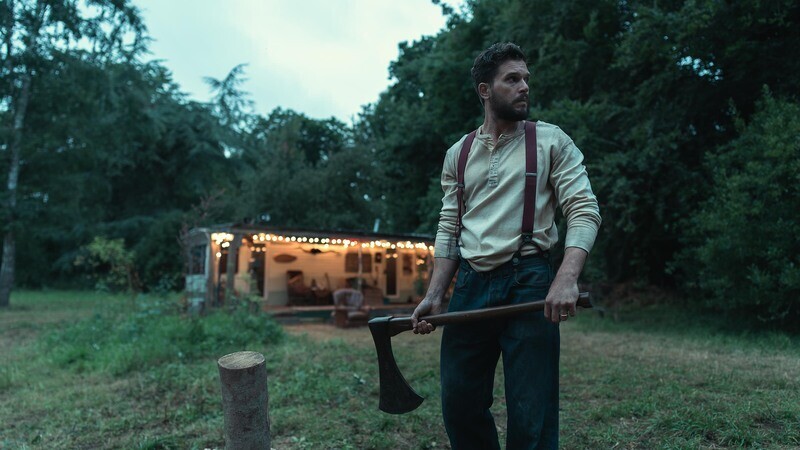
A less effective brush with the supernatural comes with Alexander J. Farrell's "The Beast Within," a too-hazy-by-half childhood fable about a young girl named Willow (Caoilinn Springall) glimpsing the collapse of her family through innocent eyes. She lives out in the English countryside with her mother Imogen (Ashleigh Cummings) and father Noah (Kit Harington), while her grandfather (James Cosmo) watches on coolly on occasion. Willow is afflicted with an unnamed illness that requires an oxygen tank, which leaves her to witness the dissolution of her parents' relationship through the hazy windows of their ornate country estate. Every so often, Noah's facade of kindness gives way to bursts of aggression; every few nights, she sees her parents drive him away or search for him in the woods. One night, she dares to follow them and sees the truth: Noah is a werewolf, and his disease is tearing their family apart.
Farrell's approach is almost too dreamlike, and some of the more interesting aspects of the film's central metaphor (e.g., the lycanthrope-as-alcoholic-father) get lost in all the subjective haze. (He cut his fangs as a documentarian, which maybe explains the doubling-down on atmosphere over narrative.) The fairy tale trappings are exquisitely clear, with its patient shots of characters gazing wordlessly at each other, the camera offering a child' s-eye view of all the moodily lit forests and crumbled stone edifices. But its charms wear off quickly, especially in a lilting second act that's a bit too patient in exploring the dynamics we've long since established. Its creature-feature bona fides are clear, including some suitably visceral transformation effects that flash so quickly in the moonlit night they barely register. But apart from its domestic-drama angle, "The Beast Within" offers little to spice up its folkloric origins.
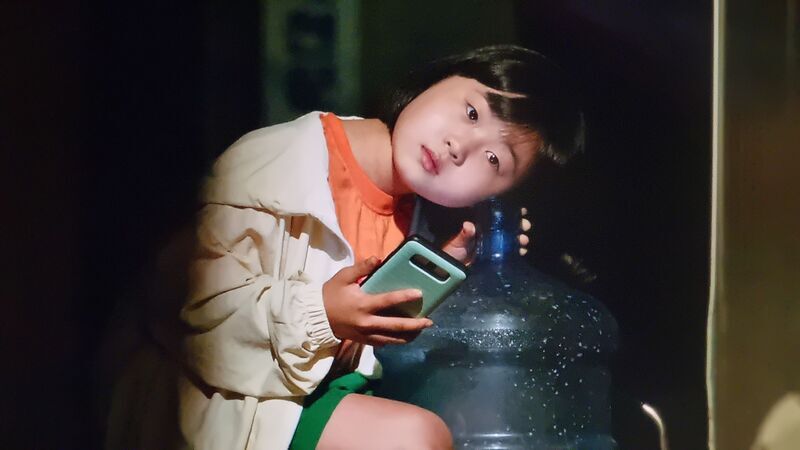
And now for something a little sunnier: A slight, but charming coming-of-age story about a little girl and the bottle of rice wine who gives her orders from space. I'm talking, of course, about Kim Da-min's exceedingly heartwarming "FAQ," a thumb in the eye to cram-school culture with a sci-fi spin. When we first meet young Dong-chun (Park Na-eun), she's already at her intellectual and emotional limit: her parents slam her into one after-school program after another, trying to prep her for the high-stakes world of adulthood with a barrage of math, science, and foreign language classes. (Her interventions even go so far as to seeking medical intervention to make her taller.) Trouble is, all this pressure taking its toll on the poor girl -- she's got crippling stage fright, and she barely has any friends at school. Her only comfort, it seems, are a pair of fuzzy children's-show creatures who give her advice in a kind of Windows 95-desktop background mind-palace (a very charming detail).
But she gets even more divine intervention when she discovers a bottle of makgeolli (a Korean rice wine) at school, and she discovers that the bubbles speak to her in Morse Code (albeit backwards, and in Persian). And they've got a divine mission for her.
That's where "FAQ"'s charms really fall into place, as her quest to decipher the code paradoxically leads her to work harder in her language classes and gives her newfound purpose outside her parents' ambitions. But as the film progresses, it flowers into a sweeter, more melancholic take on the sky-high expectations of high-productivity cultures like South Korea's, the way we can strip away our sense of hope and purpose by burying ourselves in metrics of excellence and status. In addition to Dong-chun's stage fright, we also see glimpses of how the adults around her have fared in this system -- whether it's her mother reckoning with her ennui at giving up career for motherhood, or her layabout uncle, who's given it all up to become a hippie drifter. One by one, they become involved in, or inspired by, Dong-chun's journey, leading to a decidedly unexpected ending whose ambition echoes "Her" or, heck, in some ways Alex Proyas' "Knowing." Turns out the universe is one giant cram school, and sometimes a bubbling bottle of booze is just the most entertaining exam to take.

